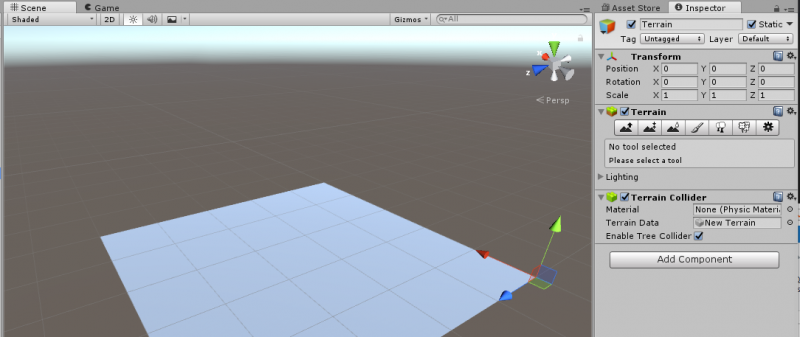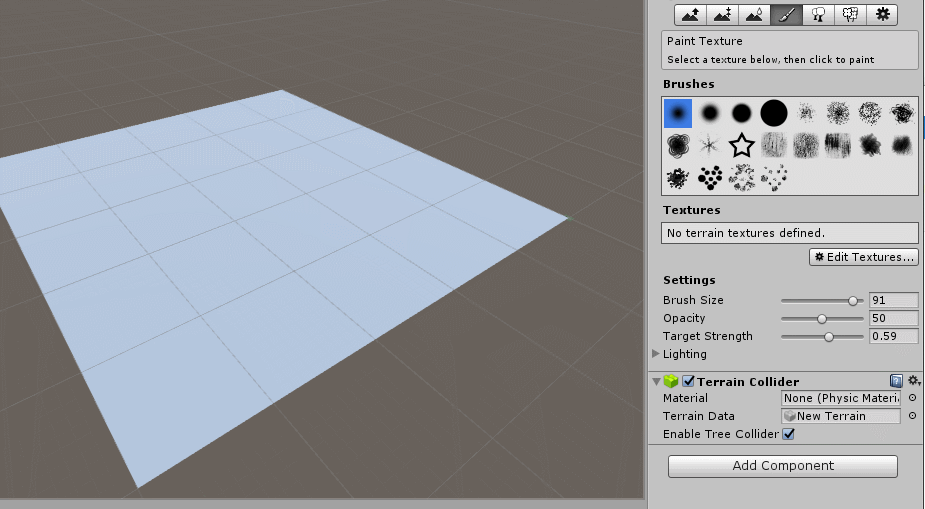Difference between revisions of "Terrain"
m |
m (→Trees and Plants) |
||
| Line 27: | Line 27: | ||
[[File:massPlace.gif]] | [[File:massPlace.gif]] | ||
| − | Mass placement: Unity will try to place the given number of trees evenly across the entire terrain, with some randomness involved. Most of the time it's easier to do this and then delete trees in areas you don't want than to use the brush and try to manually distribute them in all the areas you want. | + | Mass placement: Unity will try to place the given number of trees evenly across the entire terrain, with some randomness involved. Most of the time it's easier to do this and then delete trees in areas you don't want than to use the brush and try to manually distribute them in all the areas you want. (Trees won't be placed on areas that Unity determines to be too steep a hill for a tree) |
=Water= | =Water= | ||
=Wind Zones= | =Wind Zones= | ||
Revision as of 14:55, 15 May 2017
This page is a work in progress! Feedback is welcome.
If you haven't already, please read the previous part to this tutorial.
Contents
Create the Terrain object
In the Game Object menu, Terrain is under 3d objects. Once you pick terrain, you should see a large blank plane appear, but when you select it, there are a lot of interesting options.
Editing Terrain
Hills and Valleys - Adjusting Terrain Height
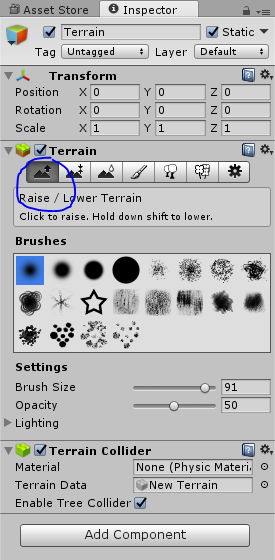
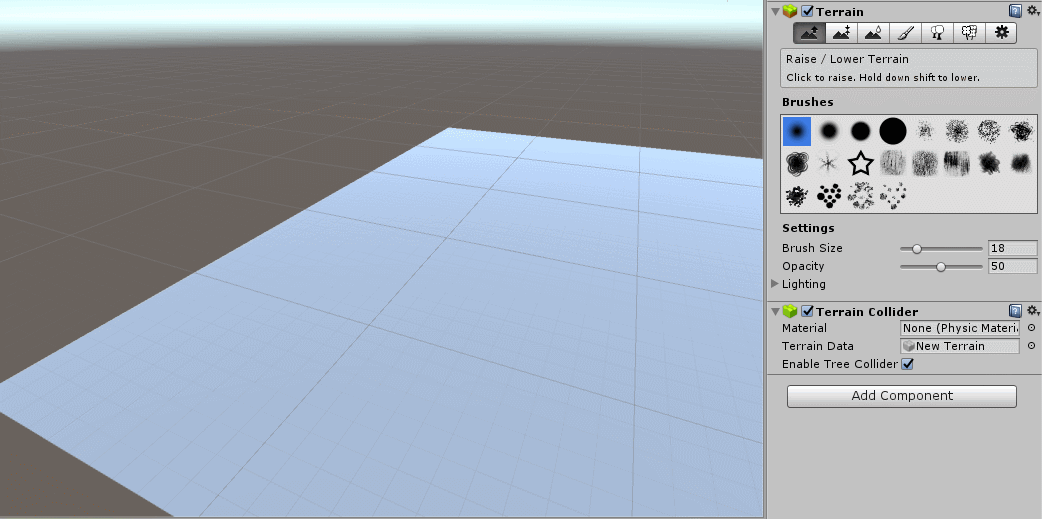 Select the terrain icon that has an up arrow, then click (or click and drag to make continuous formations) anywhere on the terrain plane to raise it at that point. pressing shift while clicking will lower that part of the terrain, though it won't go below the terrain's initial level.
Select the terrain icon that has an up arrow, then click (or click and drag to make continuous formations) anywhere on the terrain plane to raise it at that point. pressing shift while clicking will lower that part of the terrain, though it won't go below the terrain's initial level.
Adding Texture to the Terrain
Pick the paintbrush icon from the terrain toolbar  .
.
Add a texture to paint using with Edit Texture > Add Texture > Albedo (RGB) and Smoothness (A) > Select > and choosing a compatible image type for your terrain. Only textures that are in somewhere in your assets will show up, so import any images you'd like to use first. The first texture you add becomes the default for the entire terrain. If you add another texture aside from that first one, you can paint over the default with the newly chosen one.
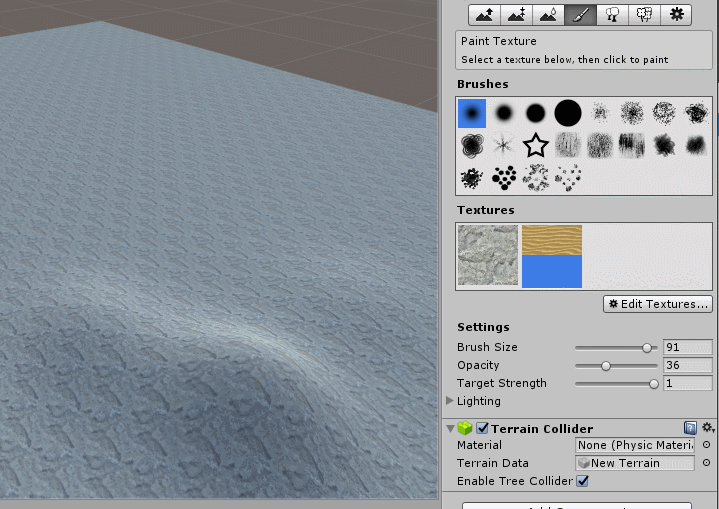
Trees and Plants
In your Standard Assets folder you should already have another folder labeled 'Environment', but if you don't, import it now.
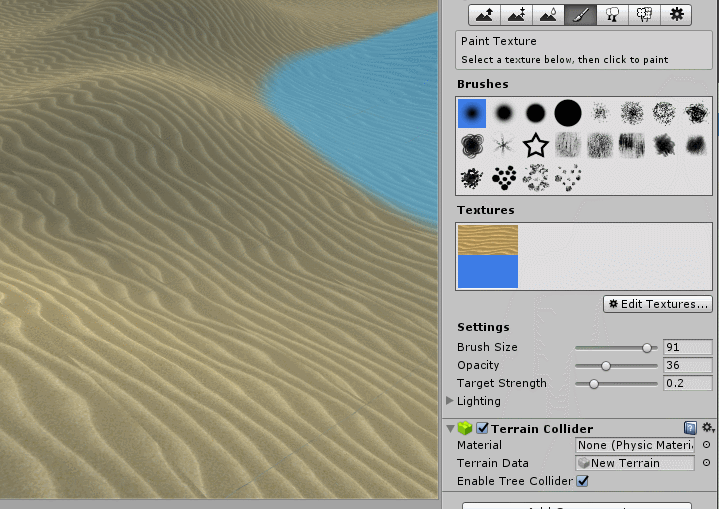
Using the brush to place trees: Brush size is how large the area you would like to paint with for 1 click, and Tree Density is how many trees will get placed in the circle when you click or move the mouse when you click and drag. Shift click to remove trees in the area you click with a radius of the chosen brush size.
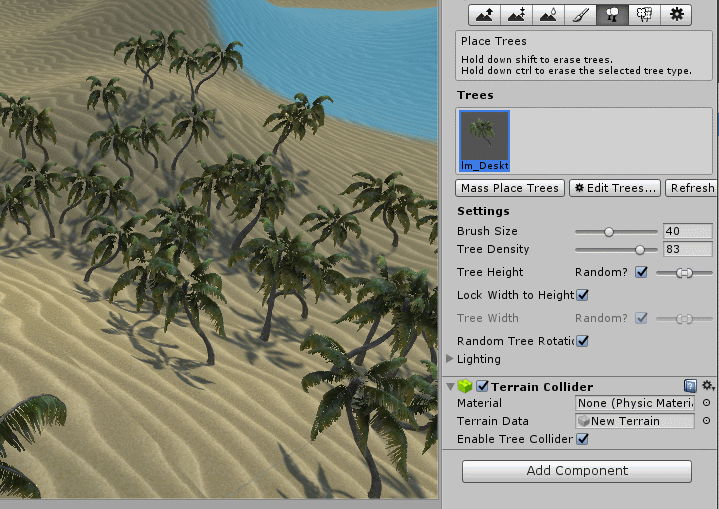 Mass placement: Unity will try to place the given number of trees evenly across the entire terrain, with some randomness involved. Most of the time it's easier to do this and then delete trees in areas you don't want than to use the brush and try to manually distribute them in all the areas you want. (Trees won't be placed on areas that Unity determines to be too steep a hill for a tree)
Mass placement: Unity will try to place the given number of trees evenly across the entire terrain, with some randomness involved. Most of the time it's easier to do this and then delete trees in areas you don't want than to use the brush and try to manually distribute them in all the areas you want. (Trees won't be placed on areas that Unity determines to be too steep a hill for a tree)
